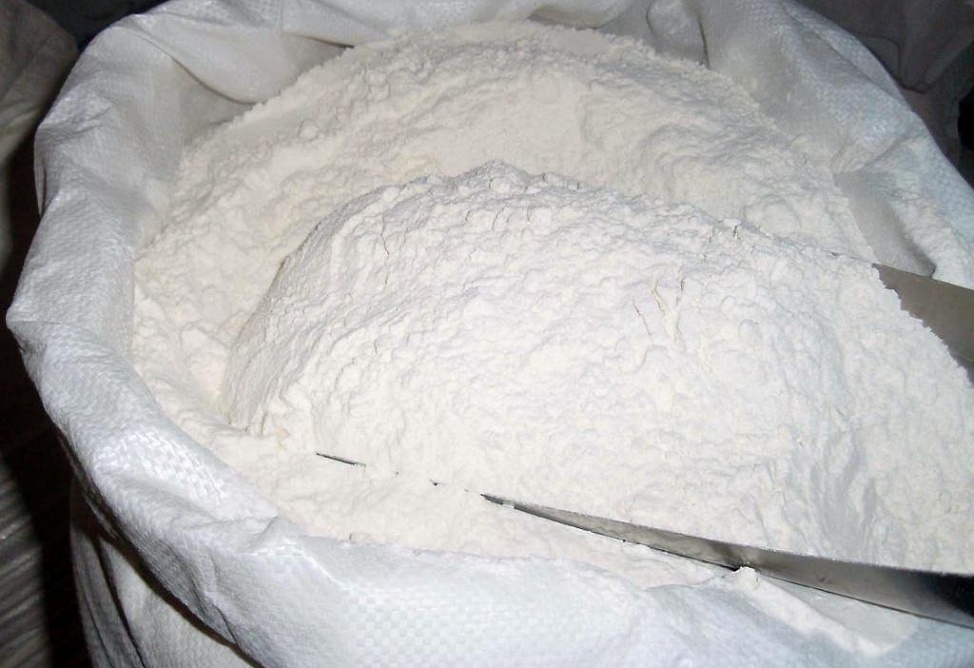Enriched wheat flour bill may help reduce rate of anemia among Armenia’s population
02.12.2014,
11:36
The bill about enriched wheat flour may help achieve a 10-15% reduction of the rate of anemia among population in Armenia, deputy minister of health Sergey Khachatryan told reporters on Monday.

YEREVAN, December 2. /ARKA/. The bill about enriched wheat flour may help achieve a 10-15% reduction of the rate of anemia among population in Armenia, deputy minister of health Sergey Khachatryan told reporters on Monday.
In November, Armenia’s government backed the bill about “enriched wheat flour” as part of the government action plan on enriched wheat flour approved in 2011.
Enriched wheat flour products are to help prevent negative effects for human health from lack of certain mineral nutrients and vitamins in flour.
The bill aims at preventing neural tube defects (Spina bifida) and cardiovascular diseases in children caused by folic acid and iron deficiency, Khachatryan said.
The information and analysis center of Armenia’s ministry of health reports 7,026 cases of anemia in adults as of the end of 2013 and 8,148 cases in 0-14-year-old children, including 2,633 diagnosed with anemia in the age from 0 to 1 year. Some 897 anemia cases were recorded in teenagers (15-17 years old).
The bill proposes to enrich the wheat flour of the high and the first class quality produced in Armenia with folic acid and iron. This requirement will relate only to companies with daily production capacity of 30 tons and above. For this purpose bakeries will be provided with the respective equipment for enrichment for free, Khachatryan said referring to the bill.
The government is to provide also the required vitamins and minerals that will be purchased through UNICEF at under-market-value prices.
The deputy minister said enriched wheat flour is successfully used in more than 85 countries, including the USA, Canada and Great Britain.
Khachatryan also said the bill was developed based on USAID-funded research conducted by the ministry and the National Statistical Service since 2000.
Statistics shows that effects from use of enriched wheat flour are seen within 3-5 years, he said. The bill also envisages reduction in healthcare costs due to use of enriched flour. –0--
In November, Armenia’s government backed the bill about “enriched wheat flour” as part of the government action plan on enriched wheat flour approved in 2011.
Enriched wheat flour products are to help prevent negative effects for human health from lack of certain mineral nutrients and vitamins in flour.
The bill aims at preventing neural tube defects (Spina bifida) and cardiovascular diseases in children caused by folic acid and iron deficiency, Khachatryan said.
The information and analysis center of Armenia’s ministry of health reports 7,026 cases of anemia in adults as of the end of 2013 and 8,148 cases in 0-14-year-old children, including 2,633 diagnosed with anemia in the age from 0 to 1 year. Some 897 anemia cases were recorded in teenagers (15-17 years old).
The bill proposes to enrich the wheat flour of the high and the first class quality produced in Armenia with folic acid and iron. This requirement will relate only to companies with daily production capacity of 30 tons and above. For this purpose bakeries will be provided with the respective equipment for enrichment for free, Khachatryan said referring to the bill.
The government is to provide also the required vitamins and minerals that will be purchased through UNICEF at under-market-value prices.
The deputy minister said enriched wheat flour is successfully used in more than 85 countries, including the USA, Canada and Great Britain.
Khachatryan also said the bill was developed based on USAID-funded research conducted by the ministry and the National Statistical Service since 2000.
Statistics shows that effects from use of enriched wheat flour are seen within 3-5 years, he said. The bill also envisages reduction in healthcare costs due to use of enriched flour. –0--



